Description
Nitril Spray contains Glyceryl Trinitrate (Nitroglycerin) 0.4 mg per metered spray. It is a short-acting nitrate vasodilator used for rapid relief of angina and for controlled lowering of blood pressure in monitored settings. It works quickly when sprayed under the tongue; other formulations (IV, patch, ointment) have different uses and dosing.
Ingredients
-
Active: Glyceryl Trinitrate 0.4 mg per spray
-
Excipients: formulation-specific propellant and inert ingredients (check pack insert)
Drug Class
-
Nitrate vasodilator
Dosage Form
-
Metered-dose sublingual spray (aerosol)
-
(Also available as IV infusion, transdermal patches, ointment — different dosing)
Uses (Indications)
-
Acute relief of angina pectoris (sublingual spray for chest pain)
-
Prophylaxis — short-term prevention of exertion-induced angina (when advised)
-
Perioperative control of raised blood pressure (hospital use, IV forms)
-
Topical/rectal use for anal fissure pain — only if specifically prescribed (usually different formulation; rectal GTN ointment is common)
Dosage
Sublingual spray (acute angina):
-
1 spray under the tongue. Keep mouth closed; do not inhale.
-
If pain continues after 5 minutes, use a second spray.
-
Maximum: 3 sprays in 15 minutes.
-
Sit or lie down before using to reduce risk of fainting.
Prophylactic (before exertion):
-
1 spray 5–10 minutes before activity that triggers angina (only if prescribed).
IV infusion (hospital use):
-
Titrated by clinician; starting doses and increments vary by indication — administered and monitored in a clinical setting.
Rectal / topical use (anal fissure):
-
Only by doctor’s instruction; usually an ointment rather than the spray.
Doses for children are not routinely recommended for the spray form.
In Case of Overdose
-
Severe hypotension, excessive dizziness, syncope, tachycardia, or methemoglobinemia may occur.
-
Management is supportive: stop nitrates, place patient supine, give IV fluids and vasopressors if needed. Oxygen and methylene blue are used for clinically significant methemoglobinemia. Seek emergency care immediately.
Missed Dose
-
For rescue use (angina) this concept does not apply — use as symptoms occur per instructions.
-
For prophylactic or hospital dosing, follow clinician guidance. Do not double a missed prophylactic dose.
How to Use (Patient Instructions)
-
Shake canister only if manufacturer instructs (check leaflet).
-
Hold canister upright; aim nozzle under the tongue and spray once; close mouth immediately.
-
Do not inhale the spray.
-
Sit when using the spray to avoid falls from low blood pressure.
-
If using other topical GTN products or patches, follow physician’s advice to avoid overlapping exposure.
When Not to Use (Contraindications)
-
Concurrent use with PDE-5 inhibitors (sildenafil, tadalafil, vardenafil) — contraindicated.
-
Severe hypotension (systolic BP very low).
-
Severe anemia.
-
Raised intracranial pressure or hemorrhagic stroke.
-
Known allergy to nitrates or any component of the spray.
Side Effects
Common: headache (often throbbing), dizziness, flushing, lightheadedness, transient tachycardia.
Less common: nausea, fainting, palpitations, local oral burning.
Rare but serious: severe hypotension, syncope, methemoglobinemia (seen with prolonged/high exposure or certain local anesthetics), angle-closure glaucoma (very rare).
If you experience severe chest pain change, fainting, sudden breathlessness, or signs of methemoglobinemia (blue/gray skin, breathlessness, severe fatigue), seek emergency care.
Precautions & Warnings
-
Postural hypotension: stand up slowly; get help if dizzy.
-
Tolerance: regular continuous use can cause tolerance; clinicians often recommend a nitrate-free interval (commonly ~10–12 hours per day) when using patches. For rescue spray, use only as needed.
-
Driving / operating machinery: avoid if you feel dizzy or drowsy after use.
-
Comorbidities: use cautiously in patients with severe heart failure, recent MI, severe aortic stenosis, liver or kidney disease — only under clinician supervision.
-
Allergy to propellants/excipients: check ingredients if you have multiple drug sensitivities.
Drug Interactions (Key Items)
-
Absolute contraindication: PDE-5 inhibitors (sildenafil, tadalafil, vardenafil) — can cause profound hypotension.
-
Severe/important interactions: riociguat, high-dose calcium channel blockers (additive hypotension).
-
Moderate interactions / caution: certain local anesthetics (prilocaine) — increased methemoglobinemia risk; alcohol and other vasodilators (additive BP drop).
-
Monitor when used with anticoagulants, antihypertensives, or drugs that affect volume status.
Food Interactions
-
No direct food interactions for sublingual spray. Avoid excessive alcohol use while taking nitrates — alcohol increases risk of low blood pressure and dizziness.
Storage / Disposal
-
Store at controlled room temperature (check leaflet), protect from heat and direct sunlight.
-
Do not puncture or burn the canister, even when empty.
-
Keep out of reach of children.
-
Dispose of empty canisters following local regulations for aerosols.
Control Drug
-
No (not a controlled substance), but prescription required.
Quick Tips
-
Sit down before using the spray.
-
Carry the spray with you if you have known angina; check expiry and keep dry.
-
Inform every treating clinician that you use nitrates (especially before surgery or if given emergency drugs).
-
Never combine with erectile dysfunction medicines.
-
Headache after spray usually means it’s working; paracetamol can be used if needed and approved by your doctor.
Doctor’s Review
Dr. Ayesha Rahman, Consultant Cardiologist
“Glyceryl trinitrate spray remains a reliable first-line option for rapid angina relief. Patients must be counselled on how to use the spray and warned about interactions with erectile dysfunction drugs. For any recurrent or changing chest pain, seek immediate medical review.”
Disclaimer
This profile is for informational purposes only and does not replace clinical judgment. Use of Nitril Spray must follow a qualified prescriber’s instructions. For diagnosis, dosage adjustment, or emergency advice, consult a registered Pakistani doctor or visit the nearest emergency department.

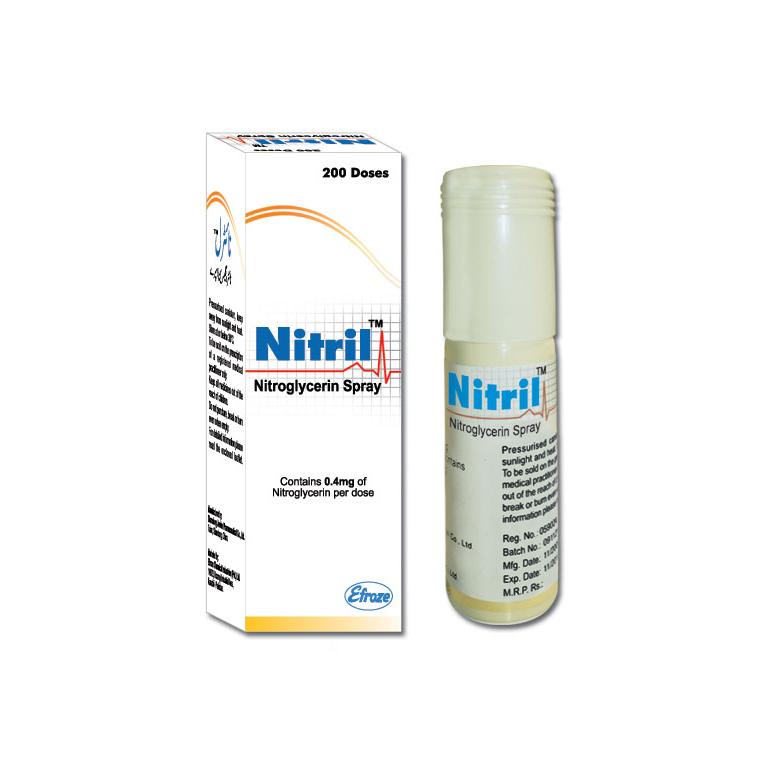
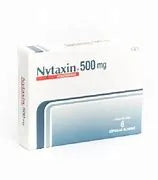
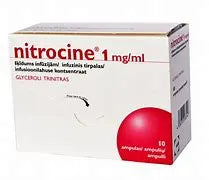
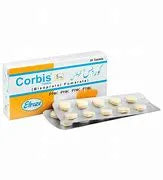
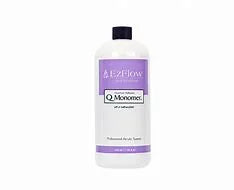

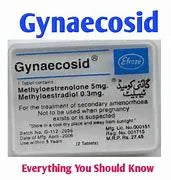
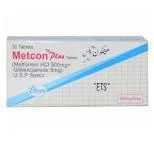
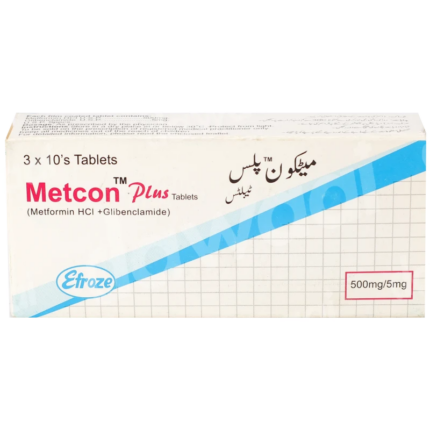
Reviews
There are no reviews yet.